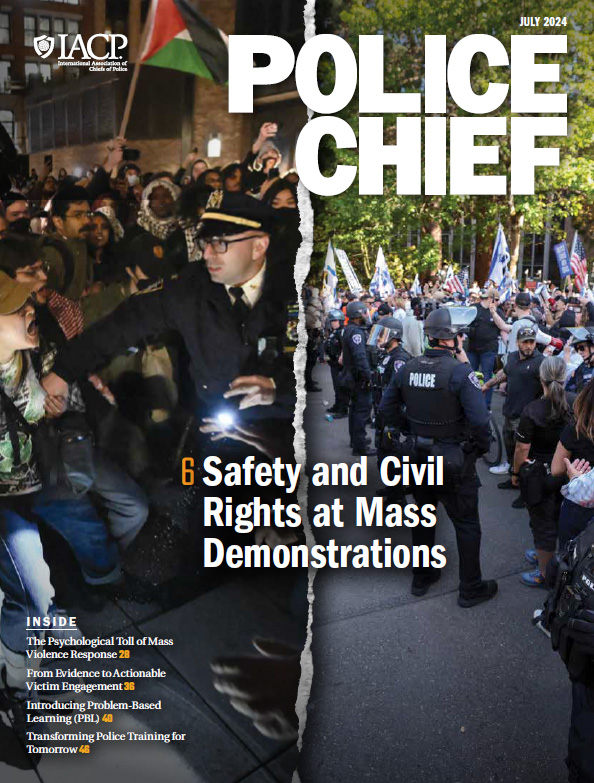The role of traffic enforcement as part of the “safe systems approach” to making the roads safer is at a critical juncture in the United States. Traffic enforcement has declined while traffic crashes and fatalities have risen to levels not seen in more than a decade. The reasons are many and complex.
The effects of the pandemic and several high-profile use-of-force incidents resulted in civil unrest; calls for reduced traffic enforcement; and in some jurisdictions, legislation impacting traffic enforcement practices and policies.
The COVID-19 pandemic changed every aspect of life, including traffic. Traffic volumes declined while excessive speeding and other aggressive driving behaviors increased. Post-pandemic, the traffic volumes have returned to normal levels, but these dangerous driving behaviors remain a surging problem that have contributed to increasing deaths and serious injuries. In addition, many police agencies are facing staffing challenges caused by increased attrition and decreasing numbers of applicants.
Discriminatory traffic enforcement has no place in society. It erodes trust and contributes to a widening of any gap already present between the police and the communities they serve. No one disagrees that traffic enforcement should be equitable, but what does that mean? Members are encouraged by recent conversations within the Roadway Safety Committee (RSC) and elsewhere to work on defining “equity in traffic enforcement.” They are optimistic that clearly defining this important framework can provide a foundation for the support of equitable traffic enforcement as a means to reverse the growth in traffic fatalities. In conversations about enforcement, police must not overlook the disparate representation of diverse populations in fatal crashes. Police leaders must define and use the equity in traffic enforcement framework to inform conversations about how traffic enforcement is part of an overall strategy to decrease fatalities for all road users, including those experiencing a disparate impact.
Every community deserves equal police protection and to have trust in law enforcement. Data-driven policing can aid in building trust. Data indicate that traffic fatalities are caused by speeding, lack (or non-use) of seatbelt or child restraint systems, impairment by drugs and/or alcohol, and distraction. A renewed focus on these dangerous behaviors must be part of any solution to the current challenges on the road. Finally, when having conversations related to the efficacy of making “low-level” traffic stops and possible outcomes, stakeholders cannot lose sight that safety issues resulting from equipment violations are indeed related to the safety of road users.
On April 2, 2023, the authors were part of a panel on Traffic Enforcement in 2023 and Beyond during the annual Lifesavers conference held in Seattle, Washington, where these issues were presented. Part of the presentation focused on the six tenets of the IACP Community Trust Building Campaign. Many of these tenets intersect with opportunities to build and maintain needed public support for traffic enforcement.
The RSC met during the annual IACP Policy Council conference in April 2023, in Grapevine, Texas. In the short term, the RSC is revising several IACP resolutions with a focus on building community trust. In the longer term, the RSC aims to revitalize support for traffic enforcement through
- proposing educational sessions for the IACP Annual Conference and Exposition and the Impaired Driving and Traffic Safety conference;
- clarifying and defining “equitable enforcement”;
- identifying best practices in race data collection and analysis from traffic stops; and
- supporting efforts of the Traffic Incident Management Executive Leadership Group.
It will take a collective effort among law enforcement; stakeholders; and, most importantly, communities to resurrect and support traffic enforcement to help drive traffic crashes and fatalities down, saving lives.


